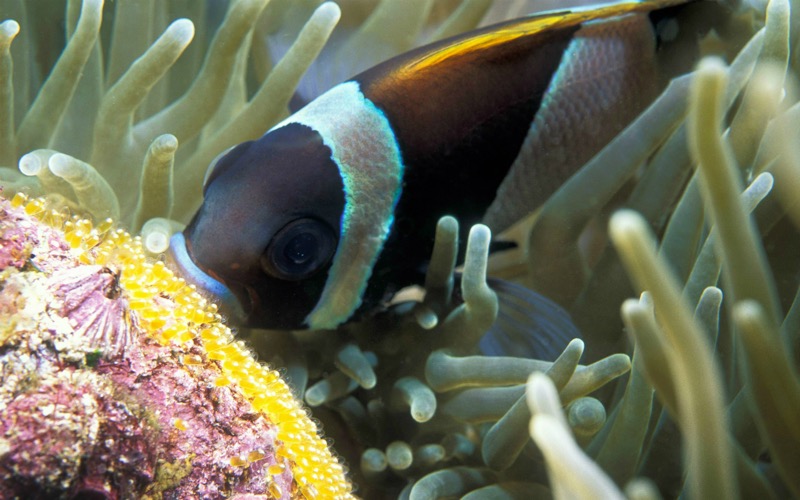Why the Urge to ‘Find Nemo’ has Helped Fish Diversify
Posted on: 11 June 2014
Caring parents foster successful offspring, or so the thinking goes. But for reef fishes, such as Disney’s charismatic clownfish, Nemo, the effects of parental care stretch right across evolutionary time and even increase species diversity. This is according to new research involving Trinity College Dublin’s Professor of Zoology (School of Natural Sciences), Yvonne Buckley.
Typically, reef fishes adopt one of two parental strategies: they are either like the egg-guarding clownfish, caring for their young, or they trust to luck and release their eggs straight into the water column following fertilisation. Although marine biologists had long suspected that fish hatching from guarded eggs settle closer to home than those hatching from floating eggs, whether or not these distances mattered in the long run had been unknown until now.
The new research shows that there is a profound evolutionary difference between these two groups of fishes: Those that guard their eggs are more likely to yield new species. This is probably because the relative lack of genetic mixing means those populations of individuals separated by distance or by some ecological barrier adapt to different environments and diversify into unique species, given sufficient time. Species that disperse more widely tend to mix more frequently, which makes it harder for different populations to follow different evolutionary paths.

Professor Buckley is a co-author of the research that has just been published in the international journal American Naturalist. She said: “There are over 7000 species of reef fishes that we know about, which means they comprise approximately 10% of all living vertebrates. It is amazing that just one factor – whether or not parents guard their young – is so important in terms of explaining species diversity patterns that span over 100 million years.”
While caring for your young leads to higher diversity, the story is not all good news for Nemo and co. Individual species are typically more vulnerable to extinction if they do not disperse widely, because local threats and disasters such as oil spills or coral reef declines can wipe out populations that do not share their genes too widely.
Professor Buckley added: “The amazing diversity of fish that live on reefs are threatened by overexploitation, climate change and pollution all over the world. Not only are we losing beautiful species, but we may also be changing the course of evolutionary processes that lead to diversity in the first place.”
Media Coverage:
The Journal, Tuesday, June 10th, 2014
Phys.org, Thursday, June 12th, 2014
